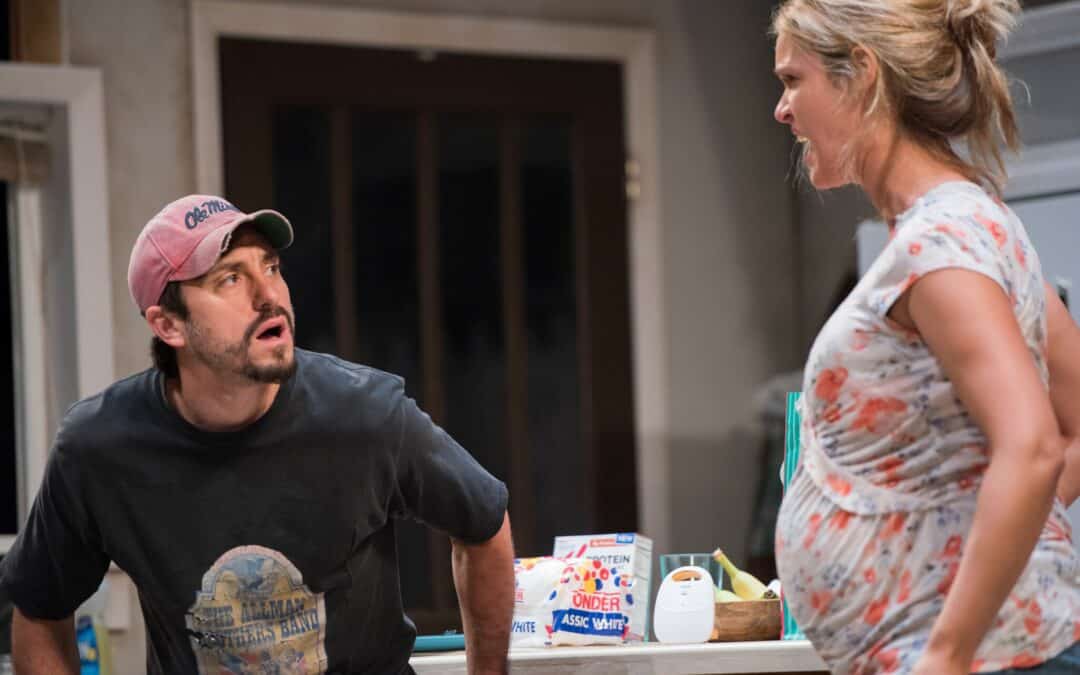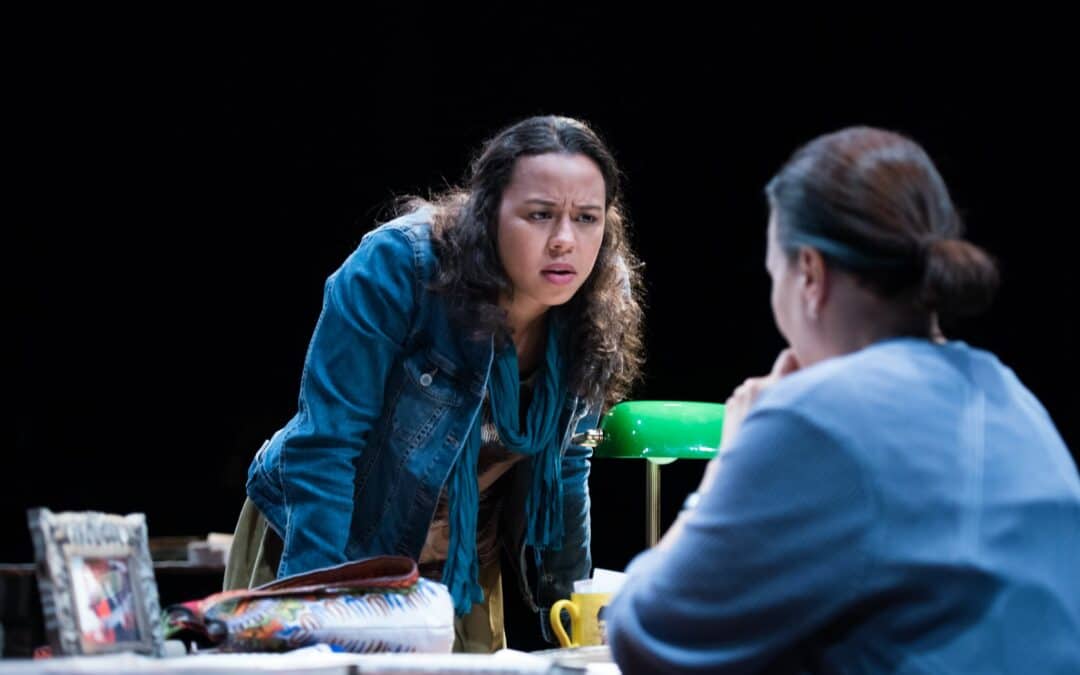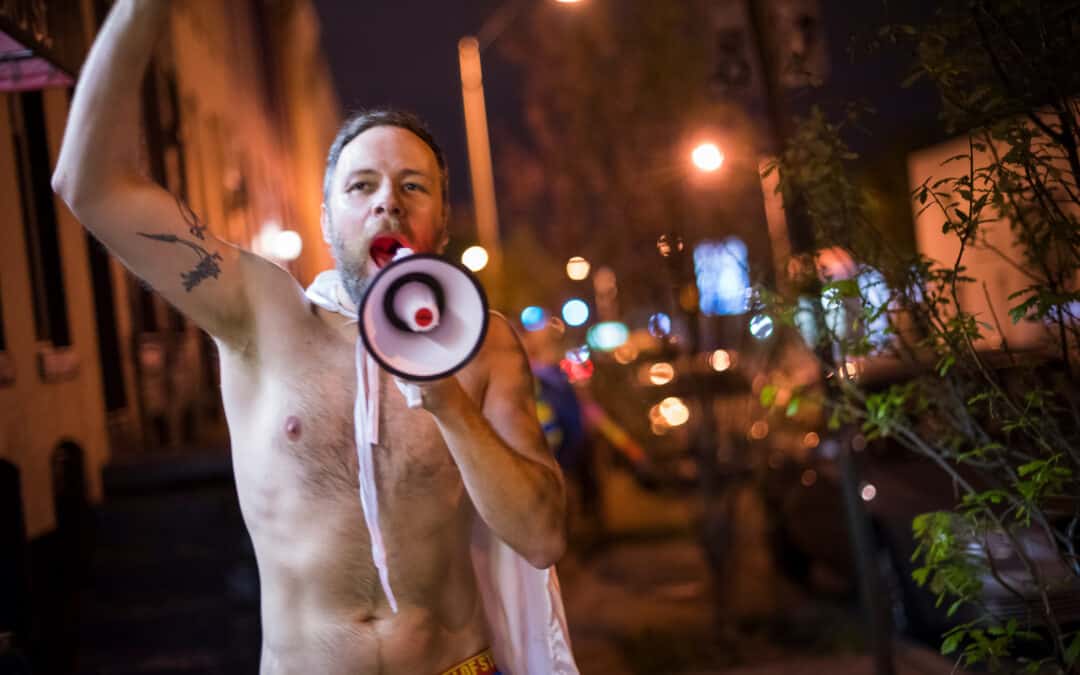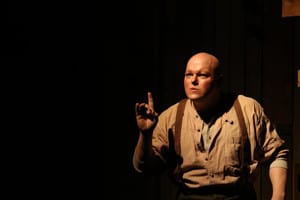
by Jack Gohn | Jul 18, 2017 | The Close Up, Theater Reviews and Commentary
The virtue of Byhalia, Mississippi lies precisely in its modesty. It prescribes no rules, apart from loving one another and telling the truth, for getting through a marital and race-inflected social crisis in a small town; it simply shows how one not-overwhelmingly admirable couple does it. And at that, the true secret here may just be the jokes. Those, and the blackout line at the very end of the play, which just may bring a lump to the throat.

by Jack Gohn | Jul 18, 2017 | The Close Up, Theater Reviews and Commentary
A two-fisted drama of ideas, The Niceties may well leave you devastated, and will certainly send you out talking. Itwill keep you thinking and probably angry, regardless of where you come down on the issues very articulately debated in it.

by Jack Gohn | Jul 18, 2017 | The Close Up, Theater Reviews and Commentary
The group portrait of the youngsters (The Woman’s younger self, her partners in crime Zabby and Skinny Lynny, the callow young men who pursue them or whom they pursue, and The Woman’s big sister, aka The Favorite) in all their confusion, pain, and, most important, their exuberance and their desire to meet life head-on, even if they do not really know what that meeting will demand or entail, is the point.

by Jack Gohn | Apr 24, 2017 | The Close Up, Theater Reviews and Commentary
The Therapist, embodied by Paul Diem, launched into a spirited evocation of the art of theater, which morphed into a vision of all life as a work of art. In that spirit, flags and funny hats were passed out to the congregation, as the Therapist stripped down to Superman skivvies and led the whole assemblage out onto Howard Street in a bacchanal, with a motorist honking in rhythm with the syncopation of Faith, and thence back to the theater.

by Jack Gohn | Mar 20, 2017 | The Close Up, Theater Reviews and Commentary
The play makes no scruple that the marriage is a term forced upon France as part of a surrender, in order to bring about a dynastic consolidation. Nonetheless, I have never before seen the courtship scenes at the end of Act V presented other than as romantic comedy. Not here. Here Katherine visibly regards Henry with visceral distaste, is struggling not to be kissed by him, and the whole thing comes across as the prelude to a rape. (All without changing a line that I could determine.) Henry would be blind not to see how she feels about him, and his proceeding with a sunny demeanor and lines about his love for her, as he does, can only result from a profound lack of interest in her feelings. By now we recognize him as willing to do almost anything in pursuit of his own and his country’s interests, and not a nice guy.






 I lived in London and Vienna before coming to the United States, and grew up mainly in Ann Arbor. I was writing plays and stories as early as grade school. My undergraduate years at the University of Pennsylvania, where I first reviewed theater, for the college paper, were succeeded by graduate study at the Johns Hopkins University, where I earned a doctorate in English Literature.
I lived in London and Vienna before coming to the United States, and grew up mainly in Ann Arbor. I was writing plays and stories as early as grade school. My undergraduate years at the University of Pennsylvania, where I first reviewed theater, for the college paper, were succeeded by graduate study at the Johns Hopkins University, where I earned a doctorate in English Literature.